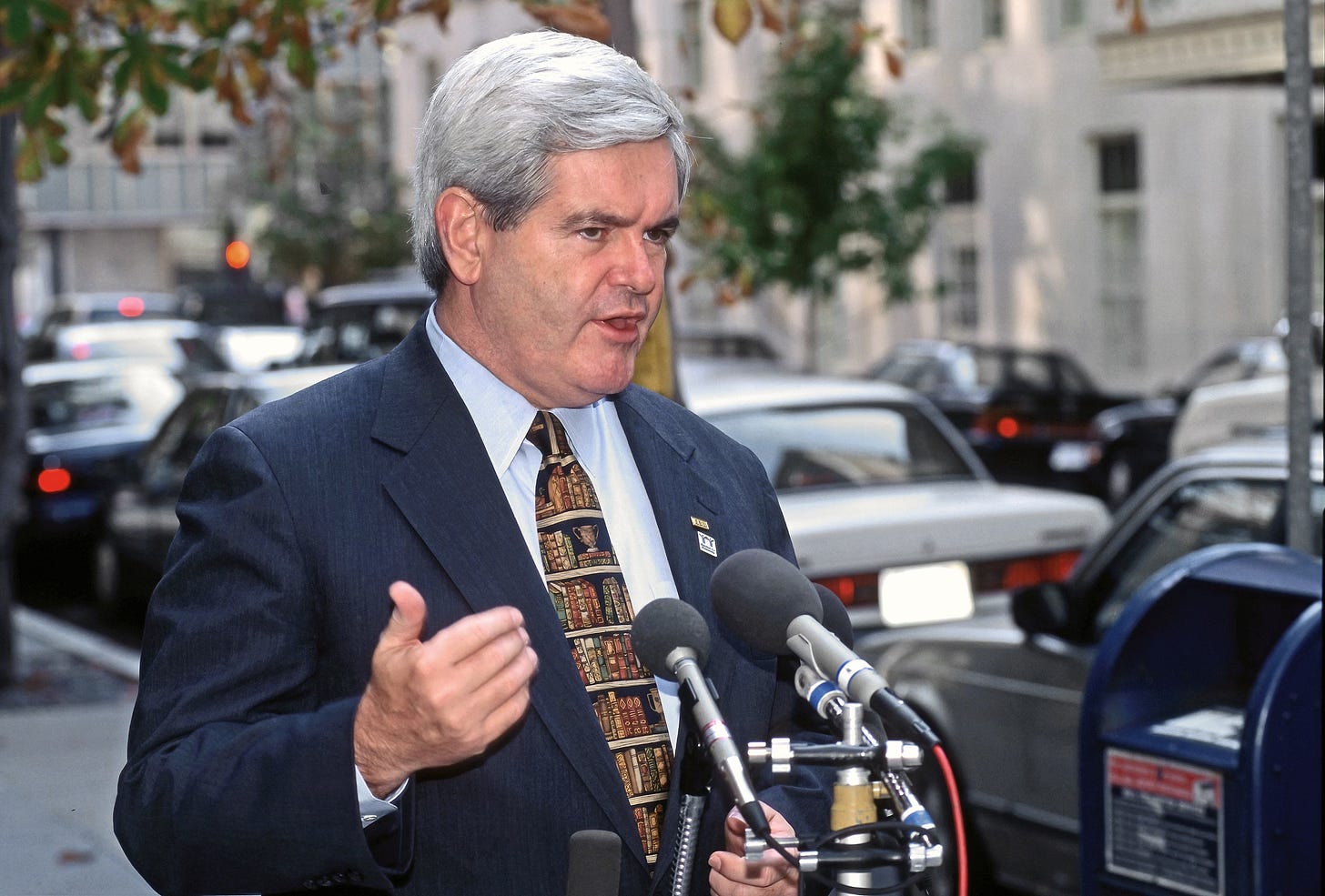The Great American Crack-Up
Yesterday's podcast featured a conversation with historian Julian Zelizer, about his new book, "In Defense of Partisanship." Here's the reader's edition
Republican Speaker of the House Newt Gingrich, who transformed the use of television to drive partisanship, speaks to reporters in Washington, D.C. after a 1995 appearance on ABC’s “This Week.” Photo credit: Mark Reinstein/Shutterstock
Claire Potter: We're taping this interview on inauguration day: it’s a terrific moment to talk about your new book, In Defense of Partisanship, which in addition to being smart and helpful is also beautiful. Julian, I want to talk about the terms that we're going to be using here: partisanship, which is in the title, but something that I think people often confuse with polarization, which is a bad thing.
Yet, you say partisanship is a good thing.
Julian Zelizer: When I think of partisanship, I think of two strong parties where you have the leaders of the parties offering alternative understandings of American politics, different perspectives on the issues that divide us, and they try to organize themselves--from the leaders to the voters--into coherent blocks. And ultimately those parties (and we've had this system since the founding) are responsible for trying to negotiate debate within legitimate boundaries over solutions to the questions that divide us.
That is for me, what strong partisanship is about. And again, all of that has to take place with an understanding between the two political teams, so to speak, that there are rules to the game.
However, breaking those rules has been typical of the last 10 years in American politics and even before that. But let's go back to the framers of the Constitution and that first political class that emerges from that moment. They were not united about partisanship. Some of them thought it was a good thing and some of them thought it was a bad thing. Can you talk to us about that?
Yes: I mean, you can see in the founding debates differing perspectives on what they thought of as factionalism, as opposed to party. You had some who were more realistic, or who perceived that divisions in a democracy are inevitable. It's almost the essence of democracy.
And more famously, you had figures like James Madison, who feared this so much that part of the goal of developing our constitution was to create a system that would prevent parties, or factions, from forming or being dominant for a long time. So, what I think of as an anti-party philosophy is there right from the beginning, even though it proves to be illusory.
And Madison changed his tune.
Absolutely, He became a player in the formation of a two-party system. Many people who don't like parties are often part of one; they just don't like the other party. Part of it is just the realities of politic, but someone could have those aspirations and learn very quickly that's not the way it's going to work in practice.
The United States is one of the few democracies in the world that only has two parties. Does partisanship work differently if you have two parties, as opposed to multiple parties that must form coalitions with each other?
It does: a two-party system, by definition, is a winner-take-all system where generally one-party wins, and the other is out of power. In a country such as England, for example, where the dominant coalition is a real coalition: you must often align with people you don't like, with differing minority voices. So, the benefit of the parliamentary system for those who like it is that it automatically includes a much broader range of views, even if many of those views were on the losing end of the competition.
Keep reading with a 7-day free trial
Subscribe to Political Junkie to keep reading this post and get 7 days of free access to the full post archives.




